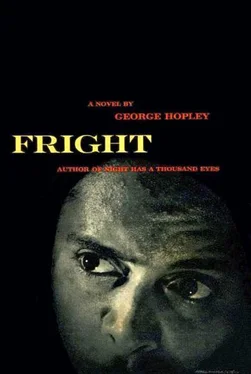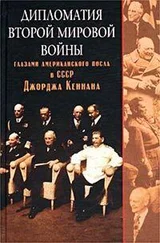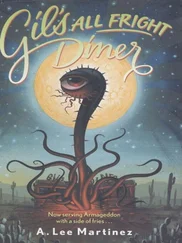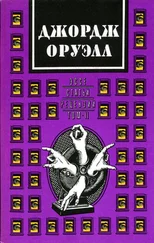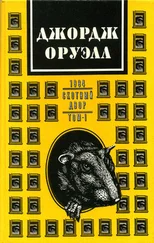Nor God nor man will tell you now
What you must do, or when, or how—
There s no retreat that must he won to,
No one except yourself to run to.
SARA HENDERSON HAY
He was twenty-five that year, 1915, and his name was Prescott Marshall. He had already been living in New York for three years, and for one of those, now, he had known Marjorie Worth. And for a good part of that one, now, he had loved her. He worked in a stock brokerage office at Number Two, Wall Street, and he didn’t make very much money. But he was young, he presented a good appearance, he had a certain indefinable appeal for wealthy elderly ladies who were clients of his firm, and that would take care of itself in due course. The fact that he didn’t make very much money as yet.
He had obtained the position through a girl he had known the first year he was in New York. She had spoken of the opening, she had told him whom to see, she had spoken to whom he was to see before he did. She was gone from his life now, but the position remained. Providing a rather illuminating commentary on the relative staying powers of physical attraction as against self-advancement in the average life.
This first foothold, this niche that he had secured, that he still clung to so precariously, would broaden, would expand with the passage of years, would become a platform of security, and at last a pedestal of success. But he needed her help to make it that: Marjorie. For she would bring to him the very things he needed most in this particular, highly selective career he had chosen for himself. She had money and money attracts other money; she had impeccable social standing, and social standing attracts confidence; she had friends who had money and social standing, and through being her friends they would eventually and in due course become his clients; through being his clients, they would attract friends of their own. It was an ever-widening circle, working to his advantage.
And so he was going to ask her to marry him. And waiting to do so until he was sure that she would consent, for he wasn’t a gambler. He didn’t believe in gambling with his own future, he didn’t believe in staking his own chances on a premature spin of the wheel.
He was ready, but he wanted to give her plenty of time to be ready too. He only bet on a sure thing.
Her beauty was what had first attracted him, tangoing at tea-time at the Plaza in a long slit skirt, and made him ask them who she was, and made him urge, “Take me over there, I’ve got to meet her.” She had a lot of it. That had held him fast past the original introduction and the first few chance meetings after. She was an extremely lovely brunette, tall and graceful of carriage. The styles were lovely that year, they seemed to have been invented just for her. They were dressing like ladies for almost the last time. He soon enough found that she was what a later generation would have called good publicity. She was prestige-enhancing to take out. She wore well on the arm. She made heads turn, and when they turned, he was the man who was with her. The boy from a New Hampshire hamlet was on his way in the big city.
Then later, when the impetus that had carried him this far might have begun to slow, had come the insight into her family’s wealth and social position to dazzle him, sweep him up again, just as he was about to drop off and let her go by. She was Money, she was Family.
His original interest had by now kindled a reciprocal interest on her part. She was a stage behind him all the way, but following the same path he was.
Then had come his self-taken decision to marry her.
All that remained now was the asking.
Her boxed corsage, violets ringing a gardenia, had been duly sent off. The tickets were in his pocket. They were for Madge Kennedy in Fair and Warmer at the Eltinge. And quite expensive too as tickets went those days; two-fifty apiece for seats in the orchestra.
He was sitting waiting in the fabulous corridor that ran through the Waldorf-Astoria, from Thirty-fourth to Thirty-third Street, “Peacock Alley.”
There were two places that were de rigueur for meeting anyone, in New York in the Nineteen Teens. If you were meeting a man, you made it the Knickerbocker Bar, on Forty-second. If you were meeting a lady — Peacock Alley.
“Paging Mr. Marshall.”
He failed to connect the name to himself the first time he heard it. He wasn’t used to being paged at the Waldorf-Astoria.
“Paging Mr. Prescott Marshall.”
He sat up straighter, beckoned, and the boy came over.
“There’s a lady on the telephone, sir. I’ll show you the way.”
He wasn’t sure if you were supposed to give them something for that. He hesitated, finally gave the boy a dime. The hesitation had spoiled it, though. The boy thanked him, but with constraint.
It was she, of course. She was the only lady in his life.
“Press,” she said, “we’ve just had bad news up here.”
Although she wasn’t crying, there was a tearful tinge to her voice, a melancholy undertone, that he’d never heard before.
“What...?” he said with bated quickness.
“They’re both gone. We just received word from the American consul at Queenstown. The cablegram got here about fifteen minutes ago. I was all dressed and ready to leave when it arrived.” She stopped a moment, then she went on, “It’s an official confirmation. The bodies have been recovered and identified.”
“Good God,” he breathed. “Your Uncle Ben and your Aunt Nelly, both.”
The Lusitania . Her mother’s only sister and the latter’s husband had been on it when it had gone down, at two o’clock Greenwich time the afternoon before, to a worldwide gasp of horror and incredulity.
He didn’t know what to say. What was there you could say, at such a time, to such a thing? He never was very good at emergencies, anyway. In the end, she was the one who had to go on talking.
“I can’t leave Mother right now,” she said wanly. “You understand, don’t you, Press?”
“Don’t think of it,” he urged. “Of course I understand. Will you give your mother my deepest sympathy?”
“Thank you, Press,” she said gratefully. “I will.”
“And I’ll call you tomorrow.”
He left the hotel by the Thirty-fourth Street side, and walked over to Herald Square, past the watchful bronze guardian-owls along the cornice of James Gordon Bennett’s wedge-of-pie-shaped Herald Building, and then on up Broadway; the entire evening was now disappointingly back on his hands, before it had even had a chance to begin, and with no one or nothing to help him pass it.
Which at twenty-five can be not only a major dislocation but even a considerable danger.
He’d been drunk for some time now, and steadily getting drunker. It had happened more by accident than deliberately. He’d just incautiously gone past the point of being able to stop any more, before realizing it himself.
The lights kept spinning, spinning, like the exposed magnified works inside a jeweled watch. Sometimes a crazy alphabet of letters seemed to shoot out from them, like sparks, and form signs all around him, and at all angles, against the sky. New Amsterdam — Watch Your Step; Liberty — The Birth of a Nation — Mae Marsh; Geo. M. Cohan Theatre — It Pays to Advertise; Globe — Montgomery and Stone in Chin Chin; Shanley’s; Hippodrome — Strand —
Sometimes they were like pinwheels, revolving around a single colored center. The bright red cherry of a Manhattan. He must have been looking straight down into his own glass when that happened. He was on Manhattans.
Читать дальше
